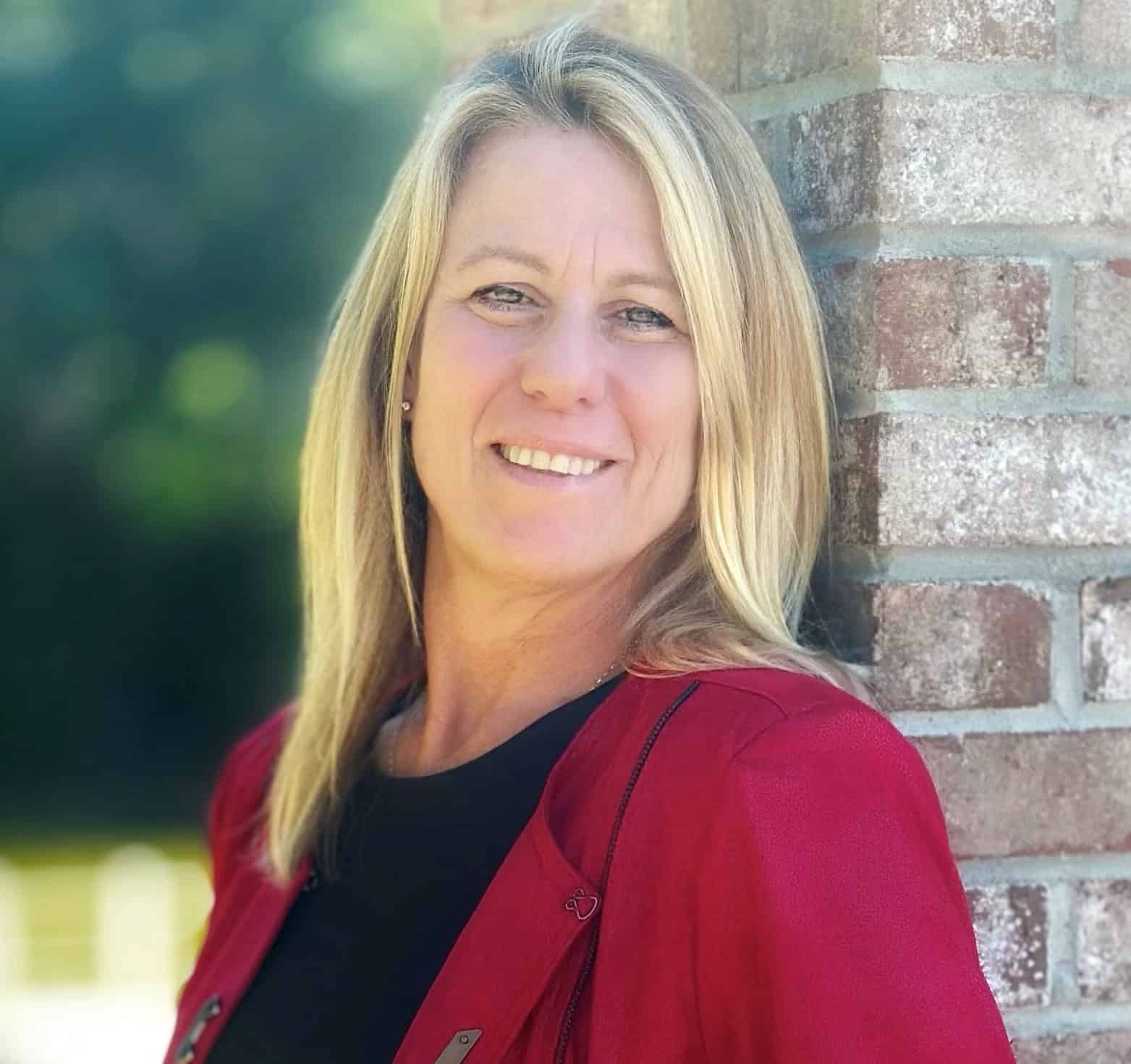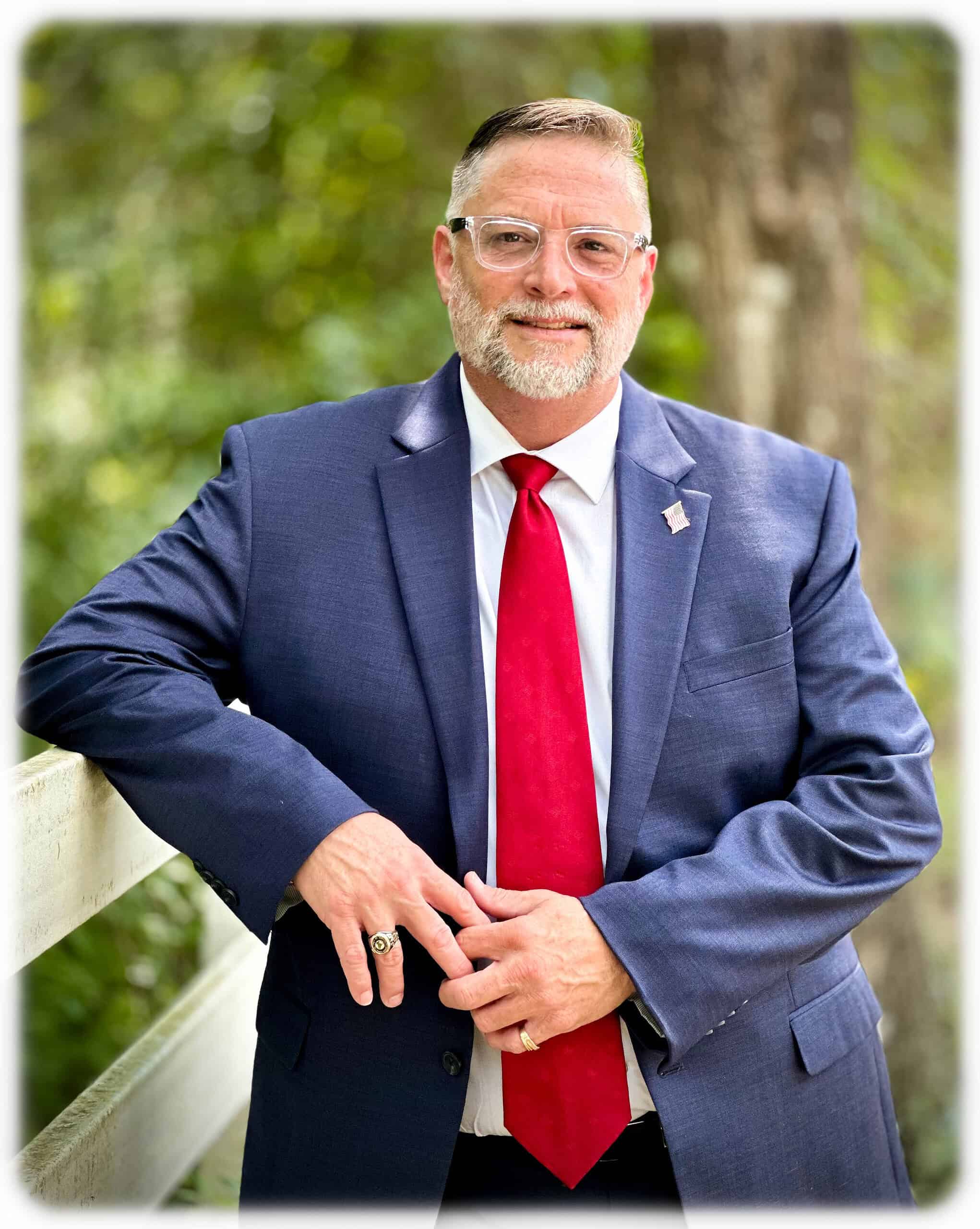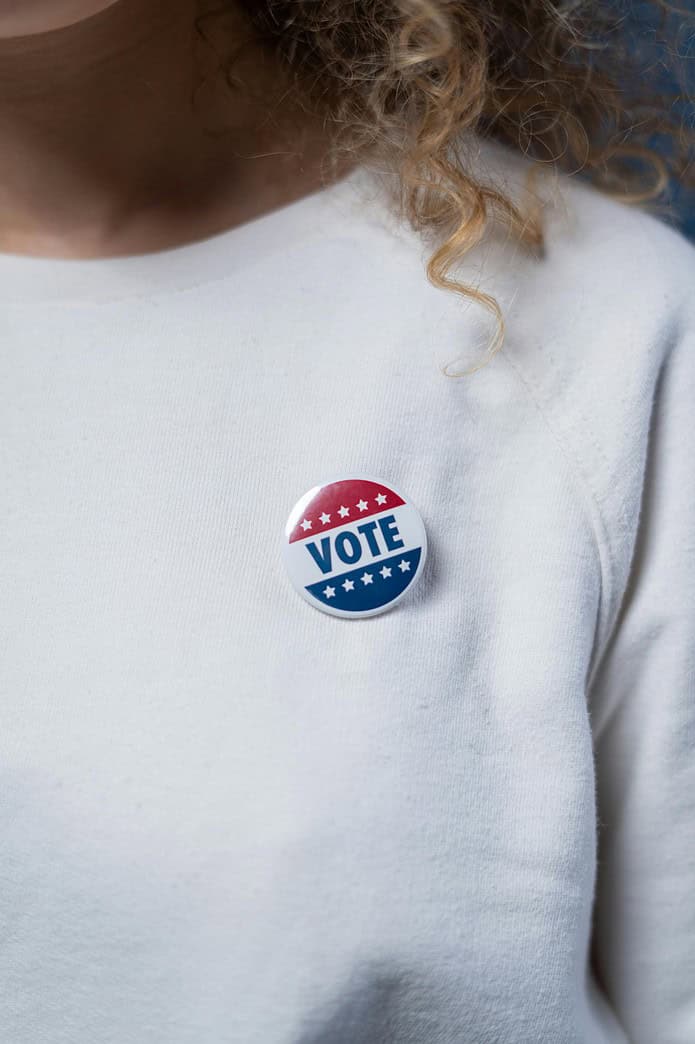This is a non-partisan race so it will appear on all Primary ballots.
Each candidate was given the opportunity to provide a 200-word bio and respond to our questions within 700 words.
ERIN DALY

BIO:
Erin Daly has extensive courtroom experience, including over 60 jury trials, many focusing on serious felonies such as crimes against children and violent offenses. Erin is known for her integrity, legal acumen, and commitment to justice. She has been awarded Florida Prosecutor of the Year and has also been honored at the White House for Humanitarian efforts. She is an ardent volunteer, a living organ donor, community leader and uniformed 9/11 First Responder.
Erin’s civic involvement, dedication and legal expertise make her the best candidate for Fifth Circuit Judge, Group 7.
Describe the life experiences that have prepared you for this position.
Growing up in a law enforcement family provided me with an early understanding of justice and community service. My role as a Court Officer Sergeant, balanced with attending college and law school at night for over 16 years, demonstrates my determination and work ethic. Graduating from Brooklyn Law School in 2006 equipped me with a solid legal foundation.
Leading the Special Victims Unit as a Florida Assistant State Attorney deepened my understanding of complex legal issues and the importance of advocacy. Transitioning into private practice broadened my perspective and allowed me to hone my skills in diverse legal matters.
Throughout my career, I have faced high-pressure situations with composure and professionalism. My background as a law enforcement officer, emergency medical technician, and 9/11 first responder has prepared me to keep a cool head under pressure. In contentious court hearings, I have demonstrated my ability to maintain focus, navigate complex legal arguments, and advocate effectively for justice.
Serving on multiple anti-crime task forces and volunteering in disaster relief efforts, along with my role as a Judge for Youth Court, underscores my dedication to community leadership and advocacy.
These experiences, coupled with my legal education and practical expertise, have uniquely equipped me with the knowledge, skills, and temperament essential for serving as a Circuit Court Judge.
Can you provide an example of a complex legal issue you’ve faced and how you approached its resolution?
Advocating as a prosecutor for survivors of sexual abuse and domestic violence is complex, especially with child or uncooperative victims. It requires empathy, compassion, and a victim-centric approach. Active listening, validating experiences, and offering emotional support are crucial to ensuring victims feel understood and safe without re-traumatization.
Maintaining victim safety, privacy, and confidentiality builds trust, while collaboration with law enforcement, medical professionals, and social services ensures comprehensive support. Understanding the nuances of family court, injunctions, and criminal proceedings is essential in handling these multi-faceted cases. Connecting survivors with therapy and support groups aids in healing and is crucial in creating safe courtroom environments.
For child victims, collaboration with child therapists and the Children’s Advocacy Center ensures age-appropriate support to minimize trauma, thus ensuring a fair trial while prioritizing victim well-being.
Do you think it’s important for judges to engage with the local community and legal professionals to foster an understanding of judicial processes and decisions?
A judge can play a crucial role in fostering trust in the judicial process by participating in such activities as speaking engagements, writing articles, lecturing, teaching, and joining organizations dedicated to legal improvement. Judges are encouraged to promote transparency by educating the public about the legal system and the judiciary’s role. Through these efforts, judges can effectively bridge any gap between the judiciary and legal professionals and the public.
Who is your favorite fictional lawyer and why? – Vincent Gambini
In Trial Advocacy Class at Brooklyn Law School over 20 years ago, we studied the classic film, My Cousin Vinny. The character, Vinny Gambini, a Brooklyn native, must navigate a murder case in a small southern town. I feel a kinship with Vinny, making him my favorite fictional lawyer of the day.
While Vinny initially struggles with the law, professionalism, and court decorum, and faces challenges with the judge, his resilience and determination in defending the defendants are admirable. Vinny remains steadfast in his pursuit of justice, even going to jail himself, ultimately uncovering the truth for the jury.
What is your favorite legal-related television or movie and why?
I’ll finish the theme here with My Cousin Vinny. Despite being a comedy, it offers a realistic portrayal of courtroom procedures and legal strategies such as the discovery procedure and the taking of statements from the witnesses. Mr. Gambini was able to closely review the physical exhibits collected in the case and do his own research to skillfully cross-examine the prosecution witnesses and produce expert testimony to rebut the incriminating evidence.
DEREK SALTSMAN

BIO & Response to Question 1:
I believe my experience as a father of six, a deacon, Sunday school teacher, classroom teacher, coach, and practicing attorney for over 40 years makes me a more understanding, compassionate and experienced person overall. Molding the lives of young people and helping them reach adulthood certainly develops wisdom and maturity which I believe developed in me, the compassion and skill set to be a rational, humble, and honest human being. I graduated from Hernando High School, Pasco-Hernando Community College and ultimately from the University of South Florida. I attended and graduated from Florida Coastal School of Law, receiving my Juris Doctorate in 2000 and I have been a hands-on, in the courtroom practicing attorney ever since. The practice of law, representing people from all walks of life and socioeconomic backgrounds makes me a diverse and understanding individual. Having experience with a variety of types of law has also aided in my abilities to be able to handle anything that might come before me with an understanding of fairness and equity. I am goal driven, self-motivated and have a broad background. I grew up on a boys’ ranch, started by my parents out of a need to provide a safe, loving family for delinquent youth. This experience taught me humility and compassion for others. It also guided me to be able to see those less fortunate with new eyes and the ability to understand differences, while holding to the morals and principles from which I was raised. Yes ma’am and sir were expected, no demanded, from me and a level of respect was demonstrated to me and I have raised my children to follow suit. The respect to others taught me to show respect to others. Seeing the way people reacted to my parents is what drove me to become a teacher and subsequently a lawyer. I humbly believe that if asked, each and every one of my former employers would not hesitate to hire me back. From the guy who I picked cucumbers for, to the florist I worked for in college. I never left a job without giving it my very best. All of these characteristics have led me to the path I am seeking in becoming the next Circuit Court Judge in the 5th Circuit.
Can you provide an example of a complex legal issue you’ve faced and how you approached its resolution?
I represented the father in this dependency case who was facing permanent termination of his parental rights of his three children. It was significant because this father was a disabled U.S. Veteran who had recently buried a child as a result of Sudden Infant Death Syndrome (SIDS). My client’s learned behavior, lack of parenting skills, along with severe depression, and Post Traumatic Stress Disorder, brought on by serving in active combat in Afghanistan, put him at extreme risk of losing his other three children to the State of Florida. I was able to negotiate a case plan that ultimately reunified this family.
Do you think it’s important for judges to engage with the local community and legal professionals to foster an understanding of judicial processes and decisions?
I do believe it is imperative that a judge knows about the community in which he/she serves. It’s important to know the history and cultural norms which make a community. This contributes to not only a well-informed community, but a well-informed judiciary. Growing up and maturing in a community makes me the best candidate. Transparency and trust are imperative to being a fair and impartial judge, two characteristics that I possess. The community knowledge not only develops trust but empowers me to follow the law equally and fairly to all citizens regardless of their race, religion, sex or socio-economic status.
Who is your favorite fictional lawyer and why?
Growing up in the South, everyone has read “To Kill a Mockingbird” by Harper Lee. The main character was Atticus Finch. He has been my favorite since my older sister “forced” me to read this book. Three pages in, I was hooked. I love Atticus because he had a strong moral compass and was a great role model for his children. This is a story about an attorney who stood up to the community, the social norms, to fight for his client against all odds, facts and circumstances in order to do the right thing. I have striven to be like Atticus throughout my career. A true southern gentleman, father and attorney who fought for the truth and ultimately prevailed.
What is your favorite legal-related television or movie and why?
Hands down, my favorite legal movie is “ My Cousin Vinny.” Probably not the choice of most legal scholars, however. I love how this movie, albeit it far-fetched and hysterically funny, but has some basic tenets of the legal process that were amusing, yet pointedly real. The “facts” as most people at first look were so against what the reality was and the manner in which Vinny was able to bring them out were totally unrealistic to what actually occurs in a real courtroom. However, writers, through satire and comedy established a clear point. The facts are not always what they seem. Real life happens and sometimes, if you take the time to listen, there is an alternative truth. The court, the jury, the State Attorney and the sheriff, all rushed to an opinion based on what the witnesses claimed to see. In reality, everyone sees facts from their own personal points of view and after proper inquiry, what they are saying is true, just from another angle. It has been said there are three sides to a story. This was a visual example. You must be able to see both sides before making a conclusion that will affect someone for the rest of their lives. My experience exemplifies this principle.

